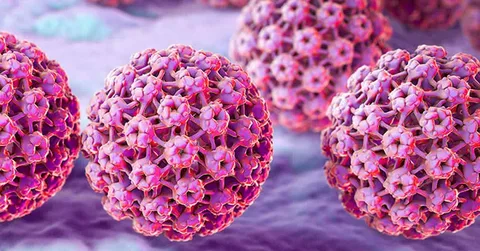Does HPV Cause Infertility? What Every Woman Needs to Know
Does HPV cause infertility? This is a question many women ask after being diagnosed with the human papillomavirus (HPV). HPV is one of the most common sexually transmitted infections worldwide, and while most cases are harmless, certain types of HPV can lead to complications that affect a woman’s reproductive health. In this blog, we’ll explore the link between HPV and infertility in women, separating facts from myths in a clear and easy-to-understand way.
What is HPV and How Common Is It?
HPV (human papillomavirus) is a group of over 100 related viruses. It spreads through intimate skin-to-skin contact, most commonly during sexual activity. According to the World Health Organization, nearly 80% of sexually active people will get HPV at some point in their lives.
There are two main types of HPV:
- Low-risk HPV – Usually causes genital warts
- High-risk HPV – Can lead to cervical cancer and other health issues
Most people with HPV don’t show symptoms and the virus often clears on its own. But some cases can lead to more serious conditions if left untreated — and that’s where the concern about HPV causing infertility in women comes in.
So, Does HPV Cause Infertility?
Let’s be clear: HPV alone does not directly cause infertility. However, it can lead to conditions that may impact fertility, especially if it progresses to more serious stages without proper medical care.
Here’s how:
1. HPV and Cervical Changes
Persistent infection with high-risk HPV types can cause abnormal cervical cell changes. If not detected early, this can develop into cervical dysplasia or even cervical cancer, which may require treatments like surgery or radiation that can affect fertility.
2. HPV and Cervical Procedures
Sometimes, women undergo procedures like LEEP (Loop Electrosurgical Excision Procedure) or cone biopsies to remove abnormal cervical cells. While effective, these treatments can weaken the cervix, potentially increasing the risk of miscarriage or premature birth, and in rare cases, affect fertility.
3. Inflammation and Immune Response
Chronic HPV infections may cause inflammation in the reproductive tract, which can interfere with the implantation of an embryo or the health of the uterus over time.
✅ So while the answer to “does HPV cause infertility in women” is not directly, the complications and treatments related to HPV can play a role in fertility challenges.
HPV and Fertility Treatments (IVF, IUI)
Recent studies suggest that HPV may also affect the success rates of fertility treatments such as IVF (in vitro fertilization) or IUI (intrauterine insemination). If the virus is present in sperm or cervical tissue, it might lower the chance of successful implantation.
However, the data is still evolving, and more research is needed to confirm how strong this link is.
Can Men with HPV Affect a Woman’s Fertility?
Yes, men with HPV can also play a role in fertility issues. Infected sperm may carry the virus to the egg or female reproductive system. While it doesn’t always lead to infertility, it may slightly reduce the success of conception, especially in assisted reproductive technologies.
This is why both partners should get tested and treated if there’s concern.
How to Protect Your Fertility if You Have HPV
The good news is, there are steps you can take to protect your fertility — even if you’ve been diagnosed with HPV.
✅ 1. Get Regular Pap Smears and HPV Testing
Early detection is key. Routine cervical screening can catch abnormal changes before they become serious.
✅ 2. Consider the HPV Vaccine
Vaccines like Gardasil 9 protect against the most dangerous HPV types that cause cancer and infertility-related complications. It’s most effective when given before sexual activity begins, but adults up to age 45 can still benefit.
✅ 3. Follow Up on Any Abnormal Results
If your Pap test or HPV screening comes back abnormal, don’t panic — but do follow your doctor’s advice for monitoring or treatment.
✅ 4. Maintain a Healthy Immune System
A strong immune system can clear most HPV infections on its own. Eat well, exercise, and avoid smoking, which increases the risk of HPV complications.
When to Talk to a Doctor About HPV and Fertility
You should consult a healthcare provider if:
- You’ve had multiple abnormal Pap smears
- You’re planning to conceive and have a history of HPV
- You’ve had procedures on your cervix and want to understand fertility risks
- You’ve been trying to get pregnant for 6–12 months without success
A fertility specialist or gynecologist can help assess whether HPV or other factors might be involved.
Final Thoughts: Stay Informed, Not Fearful
So, does HPV cause infertility? Not in most cases — but it can lead to complications that may impact fertility if left unmanaged. The key is early detection, treatment, and regular monitoring.
HPV is incredibly common, and in many cases, it clears up on its own. With modern medicine, vaccinations, and smarter screening, women today have more tools than ever to protect both their reproductive health and future fertility.
✅ Key Takeaways:
- HPV itself doesn’t directly cause infertility but can lead to cervical issues that might
- Treatments for HPV-related conditions can impact fertility in some cases
- Vaccination, early screening, and healthy lifestyle choices help reduce risks
- Talk to your doctor if you’re concerned about HPV and fertility



Leave a Reply
Want to join the discussion?Feel free to contribute!